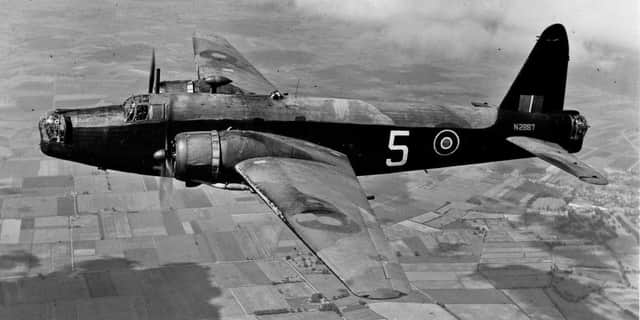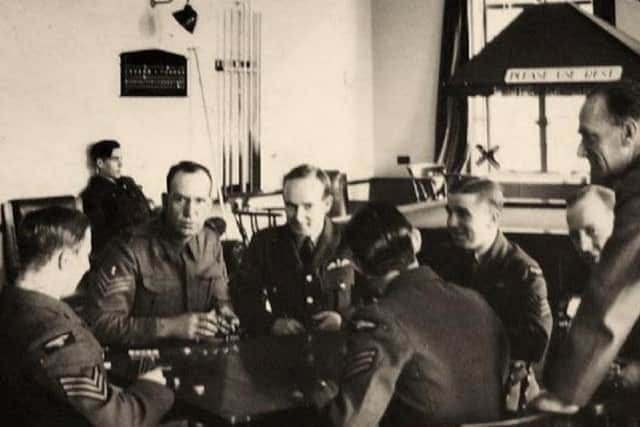Seeking families of South Tyneside's heroic airmen


Back in 2017 we related local historian Dorothy Ramser’s account of the life and untimely death of Thomas Purdy, who was born in January 1930.
Dorothy told how at the age of 16, on completing his secondary school education, Thomas left home to become an apprentice at RAF Halton, in Buckinghamshire with a view to gaining qualifications as an RAF mechanic.


Advertisement
Hide AdAdvertisement
Hide AdShe said he thrived in the RAF and by 1937 was a pilot sergeant, flying in Wellington bombers.
In 1939 he took part in what became known as the Battle of Heligoland Bight, showing valour and bravery in the face of the enemy.
On December 24, 1940, Sgt Purdy was awarded the Distinguished Flying Medal.
The citation read: “Sergeant Purdy has taken part as captain of aircraft in most of the important operations undertaken by the squadron since 4th September 1939, and has at all times shown conspicuous gallantry and determination in pressing home his attacks in the face of severe enemy opposition and in adverse weather conditions.
Advertisement
Hide AdAdvertisement
Hide Ad“On 18th December 1939, in operations near Heligoland he was responsible for the destruction of three enemy aircraft. His success as a captain of aircraft is no less marked than his skill and determination as a pilot and he has imbued his crew with a team spirit to a marked extent.
“By his courage, persistent determination, skill and power of leadership, this N.C.O. has at all times set an example deserving of the highest praise.”
Tragically on July 23, 1942, Thomas’ family learned that he had been killed in action.
Twenty-eight-year-old Thomas is buried in Woensel Cemetery, Eindhoven.
Advertisement
Hide AdAdvertisement
Hide AdDorothy’s account has since been seen by historians at the International Bomber Command Centre (IBCC) in Lincoln, who are preparing to commemorate the 80th anniversary of the historic Battle of Heligoland Bight – the first “named air-battle” of World War Two.
An IBCC spokesperson said: “It proved to be a baptism of fire for the RAF and resulted in the loss of 57 airmen and 12 Wellington Bombers.
“Happening so early in the war, this action and the men who fought in it have largely been forgotten.
“However, it is widely acknowledged that as a result of this disastrous raid Bomber Command decided to discontinue daylight raids over mainland Germany in favour of night operations.
Advertisement
Hide AdAdvertisement
Hide Ad“Had this bitter experience not been heeded, the RAF would have undoubtedly faced annihilation at the hands of what was then a dominant Luftwaffe.”
As part of the Heligoland 39 Project, researchers “a massive search is underway to find the living relatives of the airmen who participated in The Battle of Heligoland Bight 1939” – including the family of Thomas Purdy.
“If your family has any connections with the Battle of Heligoland Bight and wish to become involved in an 80th Anniversary Reconciliation & Commemoration Ceremony in December 2019, please get in touch.”
Families can contact the Heligoland39 Project at 1 Castelhythe, Ely, Cambridgeshire, CB7 4BU, telpehone (01353) 665665 and www.heligoland39.org or International Bomber Command Centre, Canwick Hill, Lincoln, LN4 2RF, telephone (01522) 514755 and www.internationalbcc.co.uk